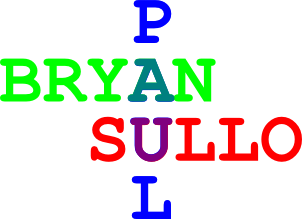I’ve always thought of scripted prayers as something one step above a magical incantation: a particular set of words, designed to control a stronger force (in this case, a deity), and bend it to your will.
Facebook is full of posts that begin, “This is a Powerful Prayer.” When I see that, I keep scrolling, rolling my eyes along with the wheel of the mouse. Even the phrase, “There’s power in prayer,” sets my teeth on edge. Certainly, I’ve experienced the power of God in response to prayer, but to assign power to a specific recipe of pious words is just hocus-pocus. Right?
My two, five-month-old children were having a particularly bad night. Both were crying and screaming. I had been ill for days–fevered and coughing–and was about to fall over from exhaustion. I had no more patience for squirmy, screaming babies.
My wife told me to go to bed. I felt horrible leaving her to deal with that mess, but I reasoned it was the best thing to be done. I fell into bed to the sound of my daughter’s wailing echoing down the hall. I began to pray. I asked God to take away whatever was bothering her. (In my mind, it sounded a lot like, “Please, make her shut up so I can get some sleep!”)
There’s a prayer I got from an Orthodox prayer-book. It’s a prayer for family and friends, and it begins,
“O God, our heavenly Father, who lovest mankind, and art most merciful and compassionate, have mercy upon thy servant(s), Names-of-people-you’re-praying-for, for whom I humbly pray thee, and commend to thy gracious care and protection. . . .”
I’ve memorized that much of it. Despite my inherent mistrust of scripted prayers, I use this one often to pray for my family and other people, because trying to come up with new requests every time you pray for your kids isn’t easy, and this prayer seems to say it better than me anyway.
This night, I prayed this prayer for my children. When I got to, “have mercy,” I envisioned the shape that mercy would take–namely, making my children sleep. I got to the end of the short prayer and nothing had changed, so I started again. This time, a few words stuck out in my mind: Father, compassionate, care, protection. It dawned on me that God might be trying to tell me something. I was asking our heavenly Father to grant my children the things I would not grant as their earthly father. Not only was I capable of giving them compassion, care, and protection, it is uniquely my job to do so.
I got out of bed, not with my usual huff, but with a renewed sense of responsibility. I took my daughter in my arms and put her crying head against my shoulder. I don’t know where I got the energy but I began to trudge the well-worn path around the house, patting her back, and reassuring her that she was OK because Daddy had her, and he would keep her safe. Within a few minutes, she was asleep. I brought her to bed, where I was soon asleep as well. It was an answer to prayer.
But her going to sleep wasn’t really the answer to my prayer. I had prayed for God to “have mercy” on my daughter. In this case, that mercy came in the form of her Daddy accepting his role. The scripted prayer became a dialogue with God. Through the words of that prayer, he modeled the role of a father for this father. If I had prayed only using my own words, requesting specific outcomes, would the results have been the same?
Do the words of this prayer, themselves, have power? I don’t know about that, but I am certain that this night God’s power worked through them.
